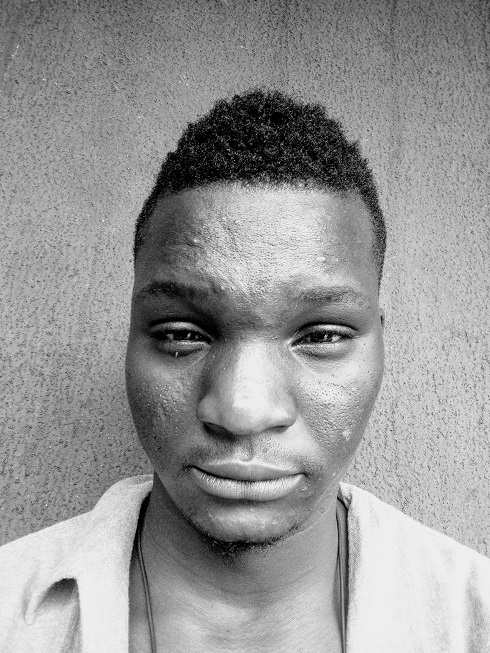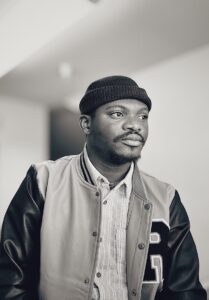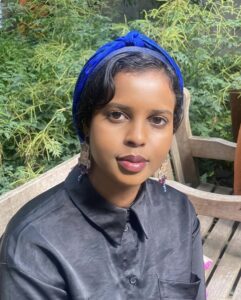In 2017, Kwame Dawes, founder of the African Poetry Book Fund and the George Holmes Professor of English at the University of Nebraska-Lincoln, launched the African Poetry Digital Portal, documenting the work of African poets and providing digital access to its wide-ranging scope of research materials and creative work. The Andrew W. Mellon Foundation has now awarded a three-year grant of $750,000 for the next phase of the project: “expanding research and scholarship relating to African poetry and joining with other institutions to create a digital collections hub that will give access to materials held by institutions worldwide.”
Kwame Dawes and Lorna Dawes, associate professor of University Libraries at Nebraska-Lincoln, lead an international team working on the Portal, which currently comprises two sections: “Contemporary African Poets” and “African Poets and Poetry in the News.”
“Poets have always understood themselves to be part of an ancient tradition that dates back into antiquity,” said Kwame Dawes, who is also the Glenna Luschei editor of Prairie Schooner. “Unfortunately, racism and other forms of power dynamics have limited our understanding of the threads of this tradition in parts of the world that were exploited. The fact is that rich and sophisticated poetic practices and traditions have always existed in African societies and continue to thrive in Africa.”
Their work, Dawes hopes, “will bring this to light and in so doing, will give poets a chance to engage this tradition as part of their understanding of poetic form and practice.” He added: “It has been a tremendous honor to form partnerships with individuals from such venerable institutions from around the world.”
The project has notable partners: the University of Cape Town, the University of Lome in Togo, the University of Ghana, the University of Oxford, Cambridge University, Northwestern University, the University of Michigan, and the US Library of Congress.
Ronnie Green, Chancellor at the University of Nebraska, expressed his excitement at the depth of scholarly work made possible by the grant. “Through poetry, humankind has a special power to express our deepest thoughts and strongest feelings,” he said. “I am thrilled that the Mellon Foundation shares our recognition of understanding the importance of African history through poetry.”
The African Poetry Book Fund, an ambitious publishing enterprise founded by Kwame Dawes, will work with the Portal. The APBF has published or awarded many poets of the younger generation, including Warsan Shire, Safia Elhillo, Nick Makoha, Gbenga Adesina, Romeo Oriogun, and Othuke Umukoro.
Lorna Dawes, who is married to Kwame, said the grant will support six doctoral research graduate assistantships, three digital humanities research grants, and 78 research stipends to students and researchers. It will further fund a four-person technology team from Nebraska’s Center for Digital Research in the humanities to develop the new portal prototype and will support 11 undergraduate research stipends at collaborating institutions.
Mark Button, dean of the College of Arts and Sciences at Nebraska, said that the portal will become “a signature intellectual and creative project within the College of Arts and Sciences for many years to come.”
Claire Stewart, the University of Nebraska-Lincoln’s dean of libraries, said the Mellon Foundation’s support will inspire more scholarship and information about African literature. “We have a remarkable opportunity to overcome distance, unifying in one place and linking together the collections that house their work in Africa and the diaspora,” she said.
Team members from partner institutions are:
- University of Cape Town in South Africa — Nikki Crowster, director of information systems and resources; Michal Singer, principal archivist, primary collections, special collections; Mandy Noble, principal librarian, special collections, Jagger Library
- University of Lomé in Togo — Hongma Enyonam (Célestine) Mérat, assistant director, UL Library and Archives; Patron KoKou Henkou, director, UL Library
- University of Ghana — Samuel Owusu-Ansah, head of digitization and institutional repository, Balme Library
- University of Oxford — Lucy McCann, senior archivist, Bodleian Libraries
- University of Cambridge — Jenni Skinner, library manager, African Studies Library, Center of African Studies; Elleke Boehmer, professor of world literature; director, Oxford Center for Life Writing, Department of English
- Northwestern University — Esmeralda M. Kale, George and Mary LeCron Foster Curator, Melville J. Herskovits Library of African Studies
- University of Michigan, Loyd Gitari Mbabu, librarian, African Studies; collection coordinator, International Studies
- Library of Congress, Lanisa S. Kitchiner, chief, African and Middle Eastern Division.





